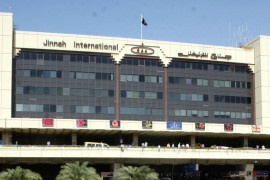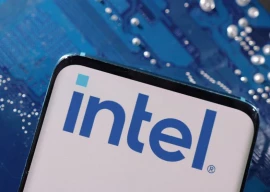
While Malaysia and the countries in the Gulf Cooperation Council (GCC), particularly Dubai, have been very active in Sukuk issuance, the new regimes in the ‘Arab Spring’ countries are also developing legal frameworks to develop Sukuk markets.
The government of Egypt has already finalised a comprehensive framework for the issuance of Sukuk and it is expected that it will issue its first sovereign Sukuk this year. The government of Pakistan also issued a few Sukuk last year, of which the Quaid-e-Azam International Airport Sukuk – raising Rs182 billion – drew some undue criticism from several industry observers and uninformed clerics.

Undoubtedly, public sector borrowing is being treated with a lot of caution all over the world, and it will be unwise to advise any government to continue borrowing, especially having accumulated a budget deficit from previous years.
The government of Pakistan has been running a huge budget deficit – at present Rs1.77 trillion or 8.6% of GDP – and it would have been wiser if the current government had been prudent with respect to borrowing. It, however, persisted in borrowing in order to meet its public sector borrowing requirements (PSBR). In addition to issuing conventional bonds, it also issued a number of Sukuk to raise capital for the public sector.

Ignoring the ill effects of public debt, Islamic banks in the country see it as a great help from the government to allow them to have access to a government security for their liquidity management. Furthermore, the government’s involvement in Islamic banking and finance as an issuer of such Shariah-compliant securities is expected to develop and deepen an Islamic capital market, which is deemed as vital for the future growth of Islamic banking and finance in Pakistan.

Those who object to the use of Sukuk to raise money for PSBR are at best exaggerating the gravity of the issue. Pakistan has been a small player in the global Sukuk market, despite it being the second largest Muslim country in terms of population.
Realising the potential of Sukuk in deepening capital markets, especially for the benefit of the Islamic banking sector, the Securities and Exchange Commission of Pakistan last year issued new guidelines for the issuance of Sukuk. It was hoped that bringing regulatory certainty to the processes and procedures would spur interest from foreign investors, especially in neighbouring GCC countries.
Given the numerous calls on Gulf capital by the likes of Turkey and now Egypt, Pakistan will have to do even more to lure foreign investors into the country. Those who are creating dissenting voices to the use of Sukuk by the government are in fact harming the cause of attracting foreign capital into the economy.
In the medium to long run, Sukuk can be used as an instrument to discipline public sector borrowing, as Sukuk requires an asset to be used to raise financing. This requirement is an inbuilt mechanism to restrict an issuer’s (including the government’s) ability to borrow money freely.
In the past, the government used the M2 motorway to raise $600 million through an Ijara Sukuk (based on leasing) for a period of five years (2005-11). Those who are against the use of Quaid-e-Azam International Airport Karachi for the issuance of Sukuk last year must keep in mind that this structure is far safer than the previous M2 Sukuk, which was offered to international investors.
The government remained adamant that it would not allow the investors (Sukuk holders) any recourse to the underlying asset (M2 motorway). The Karachi airport Sukuk also does not provide recourse to the Sukuk holders in case of sovereign default (although from Shariah viewpoint is it better to give the investors recourse to the underlying asset). So, any fears that the government is endangering assets of national security by channelling it to the private sector are ill informed.
In fact, it may not be a bad idea at all to use Sukuk as one of the tools for privatisation of some public sector enterprises. There are numerous convertible Sukuk structures being used around the world and it would be good if in Pakistan convertible Sukuk structures are used to privatise the likes of Wapda and Pakistan Railways.
In case of Pakistan Railways, the government should develop a long-term Sukuk programme to raise $20-50 billion over a period of 10 years to modernise and expand railway infrastructure. At the end of the Sukuk tenure, investors may be offered to either redeem their Sukuk or convert them into a special share class that can be created to accommodate private sector investment in Pakistan Railways.
This kind of infrastructure Sukuk will not only be attractive for local investors but also for foreign investors who have appetite for such securities in emerging markets like Pakistan.
Such Islamic financial programmes are expected to put the country back on track of becoming a global leader in Islamic finance. People should not worry about their public debt, as long as it is used for infrastructural development.
The writer is an Economist and a PhD from Cambridge University
Published in The Express Tribune, March 11th, 2013.
Like Business on Facebook to stay informed and join in the conversation.
COMMENTS (2)
Comments are moderated and generally will be posted if they are on-topic and not abusive.
For more information, please see our Comments FAQ































1714024018-0/ModiLara-(1)1714024018-0-270x192.webp)









http://tribune.com.pk/story/467671/a-word-of-caution-on-sukuk-financing/
the author earlier puts a CAUTION on sukuk financing and now hes in favor of it..Sigh!
"This kind of infrastructure Sukuk will not only be attractive for local investors but also for foreign investors who have appetite for such securities in emerging markets like Pakistan".
Pakistan is not an emerging market, it is a frontier market and Pakistan Railway is certainly not worth $20 billion dollars by a very long shot.